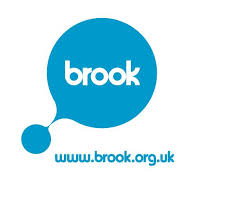What you need to know about "Cyber bullying and trolling"
We hope what you see here helps. If you are feeling like running away or are away from home, we are here to listen.
Call or Text 116 000 or email 116000@www.runawayhelpline.org.uk. For free and in confidence.
For info about 1-2-1 chat times or to chat live, click the pink chat button below.
Cyber bullying & trolling
Cyber bullying is when someone is targeting you online, doing or saying things that upset you, or trying to make you look bad to others. This could be by writing nasty things about you, either in a public way e.g. commenting on a YouTube video, @replying on Twitter/tweeting about you, writing Facebook posts about you/commenting on your posts, writing a blog about you, etc. Or it could be a more private bully, who will send you emails, Facebook PMs, private Twitter messages, and so on.

Don't feed the trolls
Writing mean comments about people with the aim of getting a reaction out of them is commonly referred to as “trolling”, or being a “troll”. Trolls have sadly become a “normal” part of internet life – people who choose to put content out into the world through platforms such as YouTube have come to expect trolls on their comments section. People sometimes write things online that they wouldn’t say to someone in person – it can seem easier to be mean and people don’t think about the effect it has, because they don’t have to see your reaction or how upset they have made you. However, this does not make their behaviour acceptable. This is still cyber bullying. There are many reasons someone could choose to become a cyber bully; sometimes boredom, sometimes their low self-esteem and them wanting to feel better about themselves by making others feel worse, often jealousy, and sometimes “real life” personal grudges. What they usually want is a reaction from you, so don’t “feed the trolls” by letting them know that you are angry or hurt by what they are doing.
So what can you do if you are a victim of cyber bullying? You could click “report” or “block”, but that isn’t always a strong enough action, especially if the damage has already been done, e.g. the bully posted an image that is now causing you problems with a larger group of people, and blocking/deleting does nothing to stop it spreading as of course that image can be replicated. If the bullying or the effects as a result of the bullying get severe, it may feel like being cornered with no escape. There may even be threats being made to prevent you from telling anyone about the bullying. However, as with any type of bullying, silence gives the bully power. Telling someone can really help. Some forms of cyber bullying are a criminal offence, so you could have access to a lot more support than you realise.
Videos about cyber bullying & trolling
KickthePJ feat. YOU!
Childline
Are you thinking of running away because you have been affected by Cyber bullying and trolling?
Get in touch with us
Share this article
Other content on this site that might be helpful
who else can help?
-
chat with us
1-2-1 chat -
free phone
116 000 -
text free
116 000 -
email
116000@runawayhelpline.org.uk



